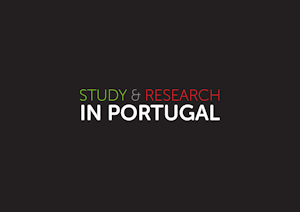Expanding Horizons: Enhancing Global Appeal Through Educational Excellence
Universities are facing a dual challenge of enhancing their international appeal while maintaining a commitment to educational excellence, benefiting the local and the global at the same time. To remain leaders in their fields, institutions must look towards innovative solutions, partnerships and metrics, while creating outcomes that are both unique and shared.
The 2025 QS Higher Ed Summit: Europe explores the strategies that institutions can employ to position themselves as leaders in the global academic arena and the broader community. By integrating innovative research, fostering inclusive environments, and aligning educational offerings with future skills needs, universities can elevate their reputation and attract a diverse array of students and faculty from around the world.
Research and Innovation: Driving Global Impact
By fostering a culture of innovation, universities can position themselves as leaders in addressing pressing global issues. But they must understand and determine which areas need to be addressed and how, as well as be agile in pivoting to new areas as needed. In doing so, institutions will be able to drive impact beyond their campus and borders. This session will explore strategies for cultivating a vibrant research environment that not only advances academic knowledge but also contributes to societal progress. Participants will gain insights from successful case studies where research initiatives have led to significant global impact.
Bridging the Gap: Partnerships and Understanding Future Skills Needs
As the world of work evolves, employers are increasingly looking to universities to understand what skills will be needed in the future, and how skills are evolving. By forming strategic partnerships with industry and other stakeholders, institutions can bridge the gap between education, employment and careers.
This session will delve into the role of research driven insights in identifying these needs and how collaborative efforts can align educational programs with market demands. The session will explore types of partnerships and how to establish them, as well as provide insights into some of the future skills needs.
The Successful Campus: Individual Excellence and Shared Achievement
Creating a high-performing university environment begins with recognising and the unique goals, ambitions, strengths and opportunities of an institution. Success in one context may not be success in another, and understanding this will have a significant impact on an institution’s ability to perform.
This session will focus on strategies that balance institutional goals with regional, national and global needs, while also exploring ways that these goals can complement each other. The session will also take into consideration students, faculty and the community for share success. By fostering a culture of excellence, universities can achieve shared success and enhance their global reputation.
Cultivating Diversity and Championing Equity
Diversity and equity are not just ideals, but essential components of educational excellence. Novel perspectives can help students, academics and research expand beyond their original scope, introducing new idea, while a diverse student body can create a more robust institution. Establishing strategies that promote diversity and equity, however, can be challenging.
This session will highlight recruitment practices that promote a diverse and inclusive university community, taking into consideration how to connect with new communities and how to make a university welcoming to all. By cultivating an environment that champions equity, institutions can reflect global perspectives and enhance their appeal.
Global Recruitment Strategies: Attracting and Creating Tomorrow’s Leaders
A significant benefit of internationalisation is the soft power link it establishes between students and their host country, having a profound political and economic impact. The establishment of programmes, such as the Rhodes Scholarship, aim to attract and teach tomorrow’s leaders. How can universities create their own programmes that attract international and domestic students, and guide them to leadership.
This session will examine effective approaches to expanding recruitment horizons, including the use of digital marketing, strategic partnerships, and leveraging alumni networks, as well as the sorts of programmes and curricular students need for the future. Participants will gain insights into how universities can position themselves as attractive destinations for the next generation of global leaders.
Future-Ready Graduates: Aligning Skills with Global Needs
Increasingly, universities are not only being asked to teach students, but also to teach students to learn as they prepare to begin their careers. To provide students with the tools they need for success at graduation, universities need to not only understand global skills and needs, but also how to understand skills transference.
This session will explore how universities can develop curricula that equip students with the necessary competencies for future careers. Attendees will learn about programs and initiatives that have successfully ensured graduates are ready to meet global challenges.
Innovative Pedagogies: Redefining Global Learning Experiences
Students have high expectations of their institutions. Not only do they expect a high return on investment through graduate employability, but they also want the best experiences that aide their pursuit of knowledge. But students are not a monolith, and finding solutions that help all students is difficult.
This session will focus on cutting-edge teaching methods that engage and attract international students, as well as the systems that need to be put in place to help them flourish. By integrating technology and creative pedagogies, universities can redefine global learning experiences and enhance their educational offerings.
Creating an Environment for Success: Positively Influencing Student Outcomes
An important measure of a university’s success is the outcomes of its students. This type of success extends beyond grades, to creating outcomes that mean success for the individual. To achieve this, universities need to create an environment the encourages these types of outcomes, from student support to faculty, facilities, research and much more.
This session will discuss strategies for creating supportive and engaging environments that positively influence student experiences. Participants will explore the importance of support services, student engagement, and feedback mechanisms in fostering a culture of success.





